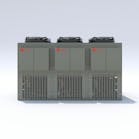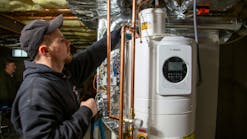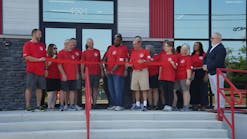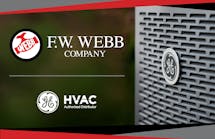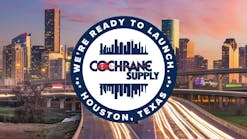From the new-look federal regulatory agencies to the newly aggressive Congress to the everything's-going-to-be-new Administration, there can be no doubt that the landscape for U.S. businesses is dramatically changing. Throw in the roller-coaster ride that is the federal government's seemingly daily change in strategy for the banking industry and the environmental lobby's somewhat blind devotion to a carbon cap and trade system, and there has perhaps been no other time in U.S. history besides the Civil War, the Great Depression and World War II when so many American personal and professional decisions are contingent on the federal government's actions.
Many members helped HARDI and other industry organizations get energy efficiency tax incentives into February's infamous stimulus bill. I continue to argue that these incentives were arguably the only example of real stimulus in the massive bill, perhaps second only to the appropriations for infrastructure spending. Tripling the tax credit for homeowners that invest in energy efficiency improvements, including HVACR upgrades, up to $1,500 could be the best opportunity our industry has to resuscitate anemic unitary equipment sales in 2009. However, getting the tax credit is sure to be a short-lived victory if we are unable to translate it into sales and tangible energy savings.
HARDI worked especially closely with ACCA to provide an immediate summary of the stimulus bill so HARDI members could start to take action. Unbelievably, there will still be companies out there that will not pay attention to this opportunity. Don't let that be you. If the HVACR industry doesn't press this rare advantage early and often, other trades will start invading our rightful territory atop the energy efficiency throne. These tax credits also extend to window replacements and insulation upgrades. There will probably be a few green roofs claimed here and there, too, when there could have been HVACR upgrades.
Recently, contractors have inundated me with calls and e-mails. Their distributors passed along my contact information because my name is at the bottom of the stimulus bill summary.
That's fine, and we're happy to help in any way necessary, but getting so many of these calls from HVACR contractors is both a blessing and a curse. Providing a resource to members that you can use to help your customers is what we strive to do every day, but these robust tax credits present an especially unique opportunity to HARDI distributors. We work hard to put you “in the know.” Use it to be that same resource for your customers. Carpe diem! Host special training sessions just on these expanded tax credits. They provide a perfect and timely excuse to deliver much-needed sales training, all while establishing your business as an authority and essential resource.
The reality is that if our industry can't use $1,500 to help the country save some serious energy, these might be the only tax incentives we'll see this decade. Conversely, if these credits translate into tangible energy savings, we've established a serious precedent that would put our industry first in line during the next energy debate.
Talbot Gee is vice president of HARDI. Contact him at 614/345-4328 or [email protected].
